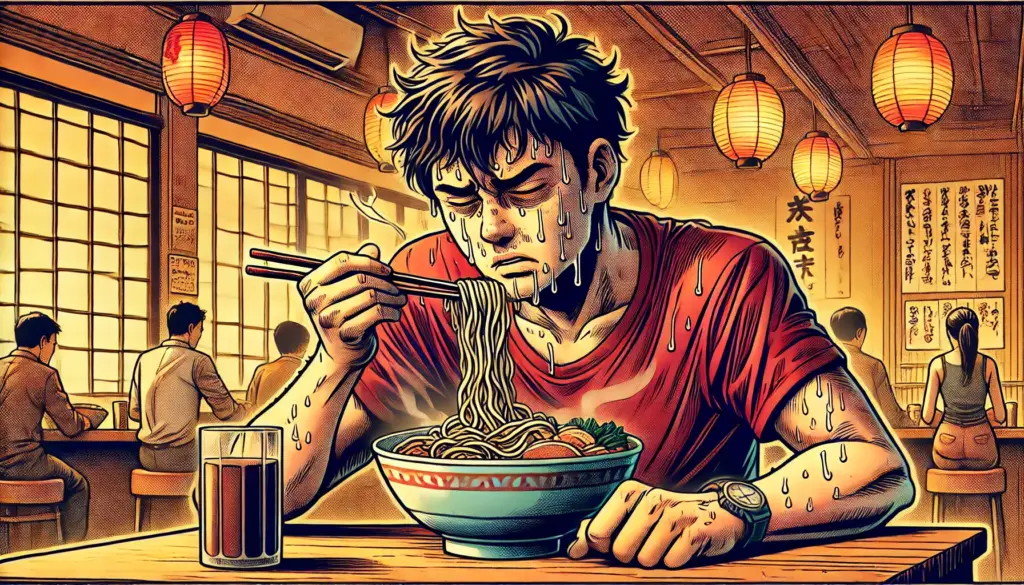
Japan’s collective ramen obsession is well-known—and now, a recent university study offers a sobering glimpse at what happens when that beloved bowl becomes too frequent. Let’s explore why “don’t drink the soup” might just be good advice for some.
What the Study Found
A large-scale cohort study of over 6,000 adults in Japan examined how often people consumed ramen and how that related to long-term health outcomes. Participants were grouped into categories ranging from “less than once a month” to “three or more times per week.”
The results were striking. Those who ate ramen more than three times per week were more likely to have higher body mass index, engage in smoking and drinking, and suffer from conditions such as diabetes and hypertension. These lifestyle patterns are known to be strongly linked with higher mortality.
Even after controlling for these factors, the group eating ramen three or more times weekly still showed a clear trend toward higher mortality compared to those who consumed it only once or twice a week. This trend has been reinforced by multiple peer-reviewed publications, including research published in the European Journal of Clinical Nutrition and indexed on PubMed, which highlights the connection between frequent ramen consumption, soup intake, and higher risk among men and younger adults.
Who Is Most at Risk?
The study revealed that some groups faced particularly elevated risks from frequent ramen consumption:
- Men showed higher mortality compared to women.
- Individuals under 70 were more strongly affected than the elderly.
- Those who drank most of the soup in the bowl had significantly higher health risks.
- People who paired ramen with alcohol faced compounded effects on blood pressure and metabolic health.
In other words, the danger isn’t just in the noodles—it’s in the soup and the lifestyle habits that often accompany ramen eating.
Why Soup Matters—and Maybe Alcohol Too
The broth is the heart of ramen’s flavor, but it is also the main culprit when it comes to sodium. A single bowl can contain an entire day’s recommended salt intake—or even more. High sodium intake is strongly associated with hypertension, stroke, kidney disease, and gastric cancers.
Drinking the soup essentially means consuming concentrated salt, and pairing it with alcohol magnifies the impact on cardiovascular health. For younger men, who are often more likely to consume both, the risks can accumulate quickly.
Ramen Culture vs. Health Reality
Of course, this doesn’t mean ramen is inherently “deadly.” It is a beloved part of Japanese culture and a comfort food enjoyed worldwide. The issue lies in frequency and consumption style. Eating ramen once in a while is unlikely to cause harm; problems arise when it becomes a daily habit, especially if the broth is always finished.
From a cultural perspective, ramen is more than food—it’s a social ritual, a late-night tradition, and even a form of affordable indulgence. But modern health research suggests that adjusting how we enjoy it could preserve the joy while minimizing the risks.
Practical Takeaways
Instead of giving up ramen completely, there are healthier ways to enjoy it without losing the experience:
- Limit frequency: Treat ramen as an occasional comfort meal rather than a staple.
- Skip the soup: Enjoy the noodles and toppings but leave most of the broth.
- Choose lighter broths: Clear or reduced-sodium versions may help.
- Avoid pairing with alcohol: Replace that extra beer with water or tea.
- Add balance: Include vegetables, eggs, or nutrient-rich toppings to reduce the sodium load.
Wrapping Up
The latest research, including work published by Japanese universities and confirmed in international journals such as PubMed, reminds us that even the most comforting foods can carry hidden risks. The message isn’t to abandon ramen, but to rethink how it’s enjoyed. For those especially vulnerable—men, younger individuals, and anyone who finishes the broth—the lesson is simple: slurp with moderation.
Ramen can remain a source of joy, warmth, and cultural connection. The key is awareness. By savoring the noodles, appreciating the culture, and leaving a little broth behind, you can still enjoy your favorite bowl—without putting your long-term health at risk.



















































